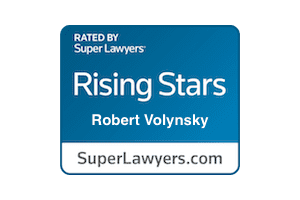



Investing is risky enough when you’re trading with your own money. Purchasing securities using borrowed funds on the other hand, known as margin trading, greatly increases your risk. The reason why trading with margin accounts is so risky is the much greater possibility that you will lose on your investment. But that’s not all. When trading with margin accounts, loss can be sudden, immediate, and total. Plus, you may even be on the hook for more than you expected.
The simple truth is: while margin trading can be highly profitable for experienced investors, it is not suitable for all investors. And if you have opted for a margin account without full knowledge of the risks involved, you may be struggling with serious loss and debts.
If you are in this position, you may be able to hold your financial advisor responsible for failing to advise you providing inappropriate margin trading advice. The laws regulating the securities industry require financial advisors to act in their clients’ best interests. This includes adequately explaining the risks of margin trading to you and informing you when the choice is unsuitable for you.
For personalized information regarding your margin accounts situation, contact our firm at (877) 905-7671 today.
As an investor looking to purchase securities, you will be required to open a brokerage account. There are 2 main types of brokerage accounts you can open:
Cash accounts are operated with your own money. If you want to buy securities, you need to have enough cash in the account that will facilitate the trade. With margin accounts though, the position is much different.
A margin account allows an investor to borrow money from your brokerage firm to operate the account. This means if you want to purchase securities using a margin account, you don’t need to possess or put up all the cash. You can put up half the funds and your brokerage firm will provide the other half to facilitate the trade.
This arrangement has great advantages as it allows you the convenience of borrowing money to fund additional investments. You may do this to leverage returns or for cash flow purposes while waiting for other trades to settle. There are many rules to abide by though. And many of these rules are the foundation for the risk involved in margin trading.
Self-regulatory organizations like FINRA and the New York Stock Exchange have rules that govern margin trading. Even brokerage firms maintain their own rules, so long as they are as restrictive as other applicable rules.
Some of these rules are:
Your account may be subject to a margin call at any time. Margin calls are made when your account falls below the maintenance margin. The call requires you to deposit more cash into the account to go above the maintenance requirement once more.
If you fail to answer the call, your broker may sell all or some of your securities. They may do this to increase your maintenance requirement above the legal minimum. Or, they may sell the entire portfolio, if the whole value has dropped dangerously.
An important thing to note here is that your broker is not required to make a margin call. They may sell your securities at any time without first consulting you. They may even make the margin call and then sell your securities without waiting for you to meet the call.
When you open a margin account, you essentially borrow against the value of the shares in the account. This means that if you lose money on the securities and are unable to answer a margin call, your securities will be used to offset the debt. That’s just the tip of the iceberg though. There are other risks involved.
You will have many obligations on the account. Apart from the obligation to repay the loan, you must pay interest as well. This may be as high as 10% of the value of the loan. You will also have to pay account maintenance fees, as well as other fees for trades.
You can lose more money than you invested. If the value of the securities falls so low that you lose all equity on the account, you may be required to pay other fees in cash. Apart from this, if the loan value is affected, you may be required to offset the lost amounts of the loan value in cash.
If you have a diverse portfolio, you cannot dictate what securities your broker can sell. They will make a decision to protect their investment, not what works best for you. Your securities may also be subject to rehypothecation. This means the brokerage firm can use your account as collateral elsewhere.
Clearly, brokers have wide powers in managing margin accounts. You should understand that this is one of the ways in which they make a lot of money. So, they have many reasons to protect their own interest.
There are instances where you can hold them accountable though:
Determining liability in all these cases would hardly be straightforward though. You would usually have to rely on an experienced securities lawyer to show that the broker has behaved inappropriately.
Fill out the form below or call 877-905-7671 to schedule your free consultation
By Appointment Only
5 N Village Ave 2nd Floor
Rockville Centre, NY 11570
By Appointment Only
9171 Wilshire Blvd #500
Beverly Hills, CA 90210
Attorney Advertising | Prior results do not guarantee a similar outcome. The information on this website is for general information purposes only. Nothing on this site should be taken as legal advice for any individual case or situation. This information is not intended to create, and receipt or viewing does not constitute, an attorney-client relationship. This site is protected by reCAPTCHA and the Google Privacy Policy and Terms of Service apply.